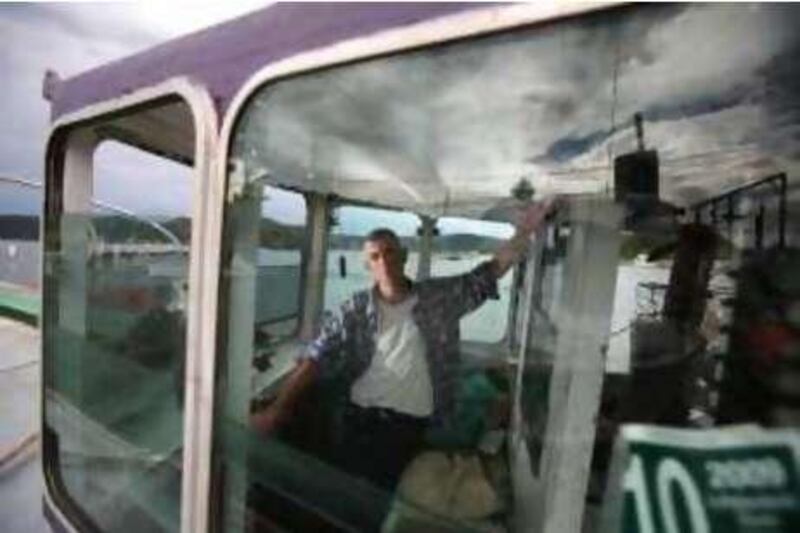SYDNEY // Climate change is reducing the supply of popular types of Australian seafood and threatening a multi-billion dollar industry, according to a new government report. Rising sea temperatures could affect Australia's commercial fishing and fish-farming enterprises that employ thousands of people and generate more than $2 billion Australian (Dh4.6bn) a year.
A study by Australia's Commonwealth Scientific and Industrial Research Organisation (CSIRO) said the seafood industry was facing radical changes in the midst of a shifting climate as ecosystems were destabilised and marine species dislocated. Significant adjustments have been recorded in the East Australian Current that moves warm water down the continent's eastern seaboard. "We found over the last probably 50 years the waters off the east coast of Australia have warmed and they've warmed quite substantially," said Richard Matear, a CSIRO researcher.
"That warming is related to how the East Australia Current is moving farther down the coast. We're finding that the ecosystems we'd find, say, off Sydney are slowly moving south and we'd expect by the end of this century that they may have migrated 500 to 1,000 kilometres." One barometer of this environmental shift is the sea urchin, a spiny creature that, tempted by warmer conditions, has gradually drifted south. It feasts on algae and kelp, a type of large seaweed, and its colonisation of waters off the island state of Tasmania is causing alarm.
"One of the things we've found in Tasmania over the last decade or two is we've been finding these sea urchins have been moving down the coast and they have actually caused quite a bit of damage to the kelp pits. There is concern that the damage will impact on fisheries like rock lobster and abalone fishing in Tasmania," Mr Matear said. The spectre of climate change is also menacing the seafood industry on the other side of the continent.
Nick Caputi, a supervising scientist at the Department of Fisheries in Western Australia, has reported a sharp fall in the number of juvenile western rock lobsters or crayfish, another popular delicacy. "We're certainly noticing some change in environmental conditions, such as more frequent El Nino events which affects a warm current that flows down the west coast of Western Australia and has a significant impact on the lobster stocks."
El Nino is a warming of seawater in the eastern Pacific Ocean and is associated with droughts and floods in other parts of the world. Some experts have insisted that global warming will intensify these climatic extremes, but Mr Caputi is keeping an open mind on what might be behind the dwindling numbers of Western Australia's rock lobsters. "Climate change is one of the things we're looking at," he said. "But I certainly wouldn't rule out other factors at this stage."
What is beyond dispute is the financial harm that will be inflicted on Western Australia's lobster fishermen and their $250 million business if stocks continue to be depleted. The Australian government has made tackling the effects of a warming planet a priority and believes that man's excess and a reliance on fossil fuels must be addressed. "We know there will be an impact," Penny Wong, the climate change minister, told a press conference in Canberra. "The question is first how much climate change can we avoid through reducing our carbon dioxide emissions and other greenhouse gases? The second thing we have to do is to adapt to the climate change we can't avoid."
Experts say that to adjust to a new environmental reality, fishermen may have to relocate to save their livelihoods as warmer waters push their catch further south. Mr Matear said it was an approach that must be considered. "It would be a big change but it is not an impossible task and perhaps there are opportunities as new fisheries open up in new regions as these ecosystems move." It is a plan that has been met with incredulity among trawler crews on the idyllic Hawkesbury River near Sydney.
Rolf Norington has for 25 years fished for prawns and squid in the bountiful estuarine waters and said the idea that fishermen should move does not make sense. "Neither is it logical, it is just not possible because we all operate in restrictive fisheries. The regulation of our fisheries means if you want to move your business elsewhere you have to purchase another business and start all over again."





